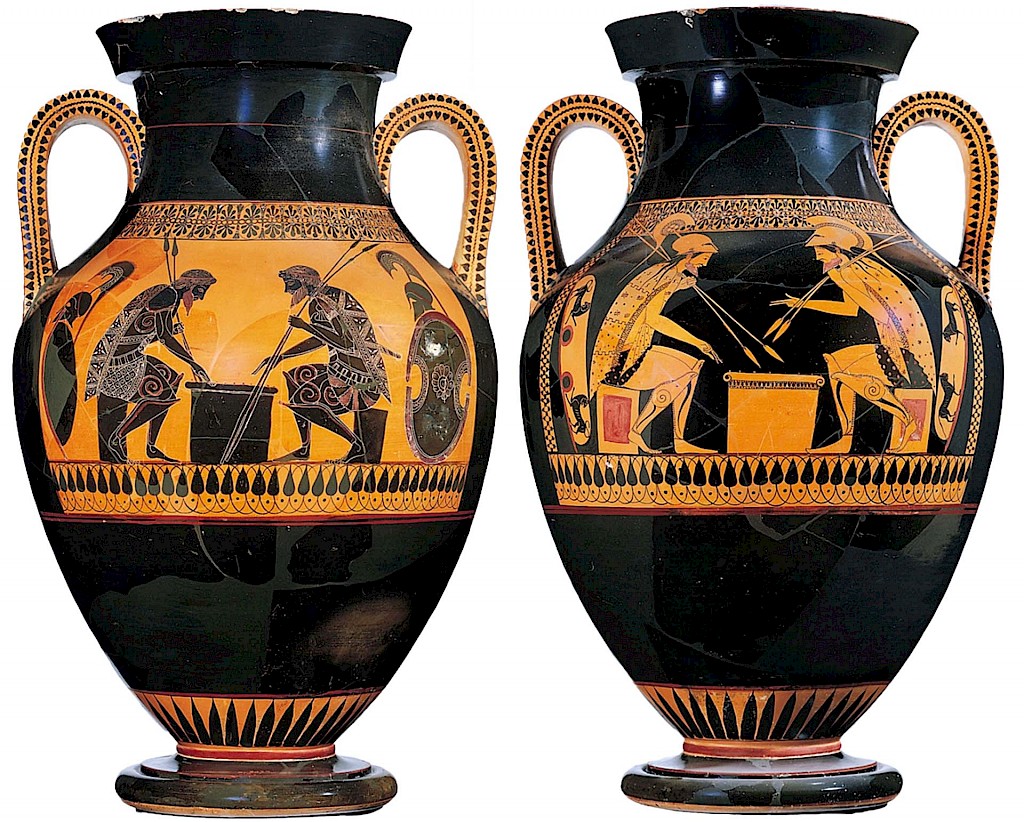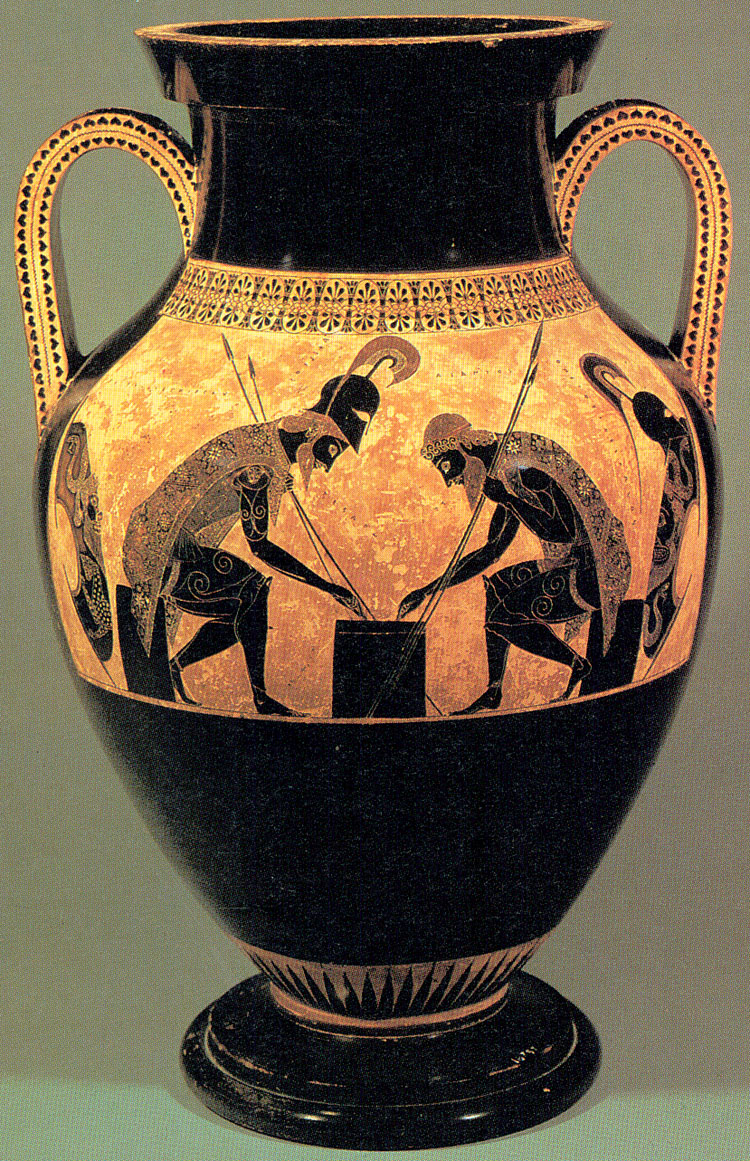In which the decoration is in black with occasional added details in white slip on the red body clay of the vessel and in which the subjects are usually drawn from mythology athletic events or the hunt in an archaic and stiff style.
Definition of attic black figure.
Black figure pottery type of greek pottery that originated in corinth c.
Vase painters articulated individual forms by incising the slip or by adding white and purple enhancements mixtures of pigment and clay.
Ancient greek black figure pottery named after the colour of the depictions on the pottery was first produced in corinth c.
530 bce in black figure painting figures and ornamentation were drawn on the natural clay surface of a vase in glossy black pigment.
Exekias was an ancient greek vase painter and potter who was active in athens between roughly 545 bc and 530 bc.
The high quality of the vases as well as the new style of decorations.
540 bc now in the munich state collection of antiquities.
It is one of the masterpieces of the attic black figure potter exekias and one of the most significant works in the staatliche antikensammlungen in munich.
Black figure pottery became very popular and was a major trade item all across the mediterranean from syria to italy.
In black figure vase painting figural and ornamental motifs were applied with a slip that turned black during firing while the background was left the color of the clay.
Heracles and geryon on an attic black figured amphora with a thick layer of transparent gloss c.
Berlin foundry cup a red figure kylix from the early 5th century bc.
Black figure pottery painting also known as the black figure style or black figure ceramic greek μελανόμορφα melanomorpha is one of the styles of painting on antique greek vases.
700 bce and continued to be popular until the advent of red figure pottery c.
Black figure definition is of belonging to or constituting a style of ceramic painting practiced by or in imitation of greeks of the 6th century b c.
The finishing details were incised into the black.
The two ancient greek pottery techniques utilize a similar approach as far as creating the vase and bringing out the desired figures during firing.
Exekias worked mainly in the black figure technique which involved the painting of scenes using a clay slip that fired to black with details created through incision.
It is the name vase of the attic vase painter known conventionally as the foundry painter.
Laconia was a third albeit minor producer of the style in the first half of the 6th century bce.
Red figure pottery consists of red images against a black background while black figure pottery consists of black pictures against the naturally red color of the vase.
700 bce and then adopted by pottery painters in attica where it would become the dominant decorative style from 625 bce and allow athens to dominate the mediterranean pottery market for the next 150 years.










